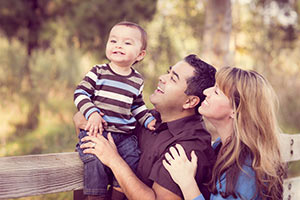ADOPTION IN
Colorado

Choosing to adopt a child in Colorado is a big step in the adoption process. For those facing an unplanned pregnancy, the Adoption.com team can assist in finding financial support, adoption information, and legal help. If you are hoping to adopt a child into your own family, there are plenty of resources and options on Adoption.com to assist with the Colorado adoption process. No matter where you start on the path toward adoption in Colorado, there are support and resources available.
Adoption Near Me
Looking for more resources in your area? Check out the Adoption Directory for a listing of adoption professionals in your state.

Considering Placing Your Baby or Child for Adoption? You can learn more here or call an adoption counselor 1-800-236-7898.
Domestic Infant Adoptions can be completed through a Colorado adoption agency in order to adopt domestically.
International Adoptions must be completed through an adoption agency in order to adopt internationally.
Foster Care Adoptions in Colorado can be completed through the Colorado Department of Human Services (970-241-8480).
Gallery of children waiting to be adopted.
Join the Colorado adoption group in our community!
I’m considering placing my baby or child for adoption.
Pregnant and have questions? We can help answer your questions by telling us what works best for you.
Are you pregnant and considering adoption? Do you need help getting started?
Click here and help us understand what your needs are and the preferences you have. We can help you get started.
Adoption in Colorado
By: Virginia Spence
Adoption is a child-focused system that seeks families for children rather than children for families. It is a lifelong commitment just like adding a biological child to a family. Beyond that basic definition, the semantics of adoption becomes a bit more complex. Add to the mix the fact that each state has its own set of rules and regulations, and you have enough information to make your head spin. This article aims to help you sift through the facts and present you with a brief reference guide to the idiosyncrasies of the world of adoption in Colorado. (Please note that, while I have tried to be thorough, this article is no substitute for working with a licensed adoption professional.)
Basic information regarding Adoption in Colorado
Colorado Adoption laws require that an adoptive parent must be at least 21 years old. There is no upper age limit, but each adoption agency may have its own age preferences. Prospective adoptive parents may be married or single and have a “good personality.” You must be at least 21 or older, pass a background check, complete training, and receive a home study. Prospective “parents must be able to use sound judgment…and demonstrate a responsible, stable and emotionally mature lifestyle.” Experience with adoption and parenting is not required. However, a person “may not adopt if [they] have been convicted of any of the following: homicide, crimes against children, drug abuse, sexual assault, or other crimes of battery or abuse.”
Adoption in Colorado is slightly atypical in the fact that it is one of only four states (Connecticut, Colorado, Delaware, and Massachusetts) that is an “agency state.” This Colorado adoption guide states that an agency state is one where only “the county department of social services or a [private] licensed child placement agency can facilitate adoption. There needs to be a child placement agency involved in every adoption (except stepparent adoptions) within the State of Colorado. An adoption attorney may assist a client with communication among agencies…[but] it is illegal to use adoption facilitators in Colorado.”
According to this detailed blog, in Colorado there two kinds of relinquishments: expedited and traditional. Both…require an agency’s (or DHS or Department of Human Services) involvement. “The expedited relinquishment procedure applies only for children under 1 year of age. The petition for relinquishment can be filed four business days after birth, and the court may grant the petition, without a hearing, within seven days after the filing. A relinquishing parent may seek to revoke his or her petition up until the court signs the Final Order of Relinquishment. In an expedited relinquishment procedure, pre-birth notice may be given to putative fathers up to 63 days before the anticipated date of delivery. The putative father has either 21 days from the date of notice or until the Petition for Relinquishment is filed, whichever time frame is longer, to properly reply and declare an intent to contest the termination of his rights….A traditional relinquishment can take several months, requires a hearing, and the relinquishing birth parents can change their mind any time before the court entering final orders. A non-relinquishing parent is given 35 days, after notice, to respond and contest his/her rights being terminated.”
Colorado also prohibits prospective adoptive parents from paying any fees to help the birth mother outside of the agency. The cost to adopt in Colorado depends on the type of agency you choose. Advertising is permitted in the state of Colorado. This means that individuals or couples seeking to adopt may place advertisements and photo listings for expectant mothers who are looking to place their babies/children for adoption.
Domestic Infant Adoption in Colorado
Colorado requires the use of an agency in every adoption situation. Private agencies will often place children already in foster care, but they usually maintain their own client base of women looking to place their babies for adoption. These agencies will also be able to help you with adoption from another state. The fees associated with domestic infant adoption in Colorado will vary per agency but will generally remain consistent with the national average of $16,000 – $20,000 per adoption. Many agencies have an income-based sliding scale that they use to determine the cost per family.
Regardless of what kind of adoption agency you use, you will need to complete a home study. This will entail a thorough review of your finances, physical health, and mental well-being, as well as an inspection of your home. The fees to complete a home study range between $2,000 and $3,000. If the child you wish to adopt is from another state, you will also need to follow that state’s regulations along with the Interstate Compact for the Placement of Children (ICPC), and more fees could be incurred.
Once you have completed your home study, you will be officially waiting for a match. During this time, your adoption agency will seek to expand its client base to find a suitable match. Once a match has been made, the birth mother can state her intent to place the baby for adoption, but she cannot sign the relinquishment papers until after she gives birth. According to an adoption law website, in the state of Colorado, the agency has four days after birth to submit the relinquishment paperwork to the court, and it is irrevocable upon being signed by a judge. The birth parents must show fraud or duress within 90 days of placement to revoke consent. There is no putative father registry in the state.
After the placement of the baby, there will be follow-up post-placement visits by your agency’s adoption social worker. These visits are to ensure the well-being of the baby and his or her new family. Once these visits are complete, the adoption agency will petition for the finalization of the adoption. This time can take up to six months, but once the judge affixes his signature, it is permanent.
Foster Parenting and Foster Care Adoption in Colorado
Foster parenting and adoption from foster care are great ways to share the love with a child who needs the stability of a family. This website states that “on an average day in Colorado, 14 children and teens are placed in foster care because their parents need time to learn new skills to become the parents their children need them to be….Most children in foster care are reunited with their families. If this is not possible, then adoption may become an option. Most children in foster care who are later adopted are adopted by their foster parents.”
If you are interested in fostering or adopting through the Colorado foster care system, you must first become a certified foster parent. You can do this by contacting your local county Department of Human Services (DHS) or any other private child placement agency in Colorado. There are generally no legal fees associated with fostering, but private child placement agencies provide adoption licensing services for a fee of $1,800 to $3,500.
Potential foster parents must be at least 21 years old and able to pass a background check. They will also need a home study in addition to completing a variety of state-mandated training, agency-specific training, and a CPR/First Aid course.
International Adoption in Colorado
When it comes to adopting internationally, Colorado is the same as most other states. Colorado requires that international adoption applicants be at least 21 years old and a resident of Colorado. Applicants may be single or married, and at least one applicant must be a U.S. citizen. They must have a complete home study, have no criminal history, and be able to cover the cost of the adoption and meet the needs of the adopted child without state or federal assistance. Rules regarding specific age, sexual orientation, and marital status may vary from country to country, as will the procedures and requirements that an applicant must follow to adopt a child.
Once you choose an adoption agency, you should consider from which country you would like to adopt. You will most likely want to work with a country that participates in the Hague Convention, an international adoption treaty that was enacted in 1993 to protect children who are adopted overseas. You can adopt from non-Hague countries, but the process can be more complex. (For a further comparison of Hague vs Non-Hague countries, please visit this web page.) An international adoption home study will require background checks, updated health and financial records, reference letters, and a personal statement about the reason you would like to adopt a child from another country. There are more steps, including a dossier, but an adoption agency will help you gather all the items that you will need to submit to the country from which you are hoping to adopt. This process can take over three months.
“You’ll need to be confirmed as eligible to adopt by the U.S. Citizenship and Immigration Services (USCIS) Adoption Department once your home study is complete. To do this, you’ll file the following documents that are appropriate to your situation:
– If you’re adopting from a Hague Convention country, you’ll file Form 1-800A along with your completed international adoption home study and your adoption dossier. Confirmed adoption eligibility for a Hague Convention country is valid for up to 15 months.
– If you’re adopting from a non-Hague Convention country, you’ll file Form 1-600A if you haven’t been matched with a child yet. You’ll file Form 1-600 if you have been matched with a child via your Colorado international adoption agency. The file that forms along with your completed international adoption home study and your adoption dossier. Confirmed adoption eligibility for a non-Hague country is valid for up to 18 months.
After the USCIS adoption department has confirmed your eligibility to adopt internationally, they’ll send your forms and adoption dossier to the adoption authorities in your child’s country where they’ll also review the documents to see if you’re eligible to adopt by their country’s set of adoption standards.”
Once the country and USCIS confirm your child’s adoption eligibility, you will need to file for a travel visa for your child. You may need to remain in the child’s birth country for several weeks or months, depending on the country. Once the visa is granted, and you travel home to Colorado, you will need to “readopt” your child to help avoid potential travel, citizenship, or parentage problems later.
Stepchild Adoption in Colorado
Not only is stepchild adoption a beautiful gesture of love, but it is also one of the easiest and most common forms of adoption in Colorado. The basic requirements are for the stepparent to be over 21 years old and be a resident of Colorado for six months. The next step in a stepchild adoption is to consider the feelings of the adoptee. In Colorado, the child must be at least 12 years old and consent to be adopted. Probably the most difficult part of a stepchild’s adoption is gaining the consent of the absent parent. It is common that the absent parent’s location is unknown or that the identity of the biological father is unknown. This site states that “Most…families…are not able to get the consent of the absent parent. The adoption can be completed without the absent parent’s consent if that parent has abandoned the child. Abandonment is when the other parent has not had any substantial contact for the past 12 months.” However, some biological parents still want an active part in their child’s life and will not give consent to have their parental rights terminated. In this event, the stepchild adoption will not be able to be completed.
Once the absent parent’s parental rights have been terminated, the stepparent can file a petition to adopt with the Probate Court for the county in which they reside. Both the biological parent and the stepparent must testify in court regarding the stability of their marriage, the bond the stepparent has with the adoptee, and his or her desire to become the unified family unit as the parent of the stepchild. Stepparent adoption in Colorado takes about three months to be finalized, and once it is completed, the adoptee will receive a new birth certificate showing the child’s new name and the new parent.
Adult Adoption in Colorado
You are never too old to be adopted. When a young person reaches the age of 18 and ages out of the foster system without a forever family in place, he or she may choose to be adopted by a foster family with whom a strong relationship has been built. That family may have wanted to adopt the young person when they were in the system, but for a variety of reasons were not able to. According to the Colorado Adoption Statutes “upon approval of the court, a person eighteen years of age or older and under twenty-one years of age may be adopted as a child.” Any person over 21 years of age can be adopted to be made “heir-at-law” to receive the benefits of inheritance. The adoptee’s name does not have to change, and her biological parents’ rights remain as they were before the adoption. “The effect of adult adoption and child adoption is different. A person adopts an adult to make such person his or her intestate heir.” Adult adoption can be finalized as soon as 45-60 days.
Embryo Adoption in Colorado
Embryo adoption in Colorado is gaining popularity. As couples complete their IVF journey, they may have remaining embryos frozen in storage that they do not plan to use. “As IVF procedure success rates continue to increase, so do the number of frozen embryos. As of 2012, there were approximately 600,000 frozen embryos in storage facilities across the country.” These embryos can be donated to and adopted by an adoptive family. “The intent is that the embryos will be transferred into the womb of the adoptive mother so that she…may give birth to a child and be that child’s parent.” Embryonic adoption is a less expensive form of adoption, with the total cost ranging from $7,500 – $19,500, depending on the state, the number of transfers, and other fees attached for travel and possible medical stay. A home study may be required depending on the agency used.
Links for Adoption Agencies in Colorado
– adoption.com/directory/colorado
Other Links for Adoption in Colorado
– Colorado.gov
Colorado Adoption Guide
The information contained on this website is for educational purposes only and is not intended to be a substitute for professional legal advice. Always seek the advice of a licensed and qualified professional. While the content of this website is frequently updated, information changes rapidly and therefore, some information may be out of date, and/or contain inaccuracies, omissions or typographical errors.
Can I Adopt in Colorado?
Applicants must be 21 or older. Applicants must be able to pass a background check. Parents must complete a home study. In order to foster, parents are required to receive 27 hours of training. The home must meet state safety requirements and have enough room for the child or teen. Parents must be physically, emotionally, and mentally fit to care for a child.
What Adoption Regulations Exist in Colorado?
Advertising: No person or organization other than county departments or child placing agencies licensed in Colorado shall offer, give, charge, or receive money in connection with finding a child, natural parent, or prospective adoptive parent for adoption. Physicians and attorneys may still charge fees for regular services rendered.
Relinquishment: Consent can be executed any time after the birth of the child. Parents may only revoke if within 91 days after submitting a relinquishment order, they prove to the court that consent came under fraud or duress.
Birth parent expenses: Physician and attorney fees, as well as any other fees approved in court are allowed.
Post-adoption contact agreements: Birth and hopeful adoptive parents can enter a voluntary agreement establishing the amount of contact after adoption finalization, but these agreements are not legally enforceable.
Birth father rights: While no paternity registry exist in the state of Colorado, unmarried fathers can still take certain actions to establish paternity and thereby receive notice of adoption proceedings.
Alternate means include obtaining an expert’s opinion concerning the statistical probability that the man is the father based on the length/time of the pregnancy, genetic testing, and other medical evidence based on tests performed by experts.
Finalization: While no required time frame for the child to live with adoptive parents before finalization exist in Colorado, out of 717 adoptions in 2014 the average time between termination of parental rights and adoption finalization was 13.2 months (acf.hhs.gov).
Is Adoption Assistance Available in Colorado?
It is always possible to adopt a child from another country, even if you live in the U.S.. In Colorado, readoption (the process by which a U.S. state court issues a final adoption decree separate from a foreign adoption decree stating that the child has been legally adopted according to the laws of a particular state) is an option, but not a requirement.
However, only when the readoption or validation of a foreign adoption decree occurs can the child receive a U.S. birth certificate (ChildWelfare.gov). For more information on how to adopt a child internationally, be sure to contact your local adoption agency.
Can I adopt a Child from another country?
It is always possible to adopt a child from another country, even if you live in the U.S.. In Colorado, readoption (the process by which a U.S. state court issues a final adoption decree separate from a foreign adoption decree stating that the child has been legally adopted according to the laws of a particular state) is an option, but not a requirement.
However, only when the readoption or validation of a foreign adoption decree occurs can the child receive a U.S. birth certificate (ChildWelfare.gov). For more information on how to adopt a child internationally, be sure to contact your local adoption agency.
State Contacts
Gallery of children waiting to be adopted:
https://adoption.com/photolisting?page=1&search_type=region&range=UnitedStates
State subsidy contact person:
Constance Vigil
Colorado Department of Human Services (CDHS)
1575 Sherman Street
Denver, CO 80203-1714
303-866-3209 • Fax: 303-866-5563
Summary
Adoptions in Colorado can be completed through the Colorado Department of Human Services.
Applicants must be 21 or older. You must pass a background check. Parents must complete a home study. Foster parents are required to receive 27 hours of training.
No person or organization other than county departments or child placing agencies licensed in Colorado shall offer, give, charge, or receive money in connection with finding a child, natural parent, or prospective adoptive parent for adoption.
Consent can be executed any time after the birth of the child. In order to revoke, parents have 91 days from relinquishment to prove in court consent came under fraud or duress.
Physician and attorney fees, as well as any other fees approved in court are allowed. Contact agreements are not legally enforceable. No paternity registry exists in Colorado.
The average time between TPR and adoption finalization in 2014 was 13.2 months.










